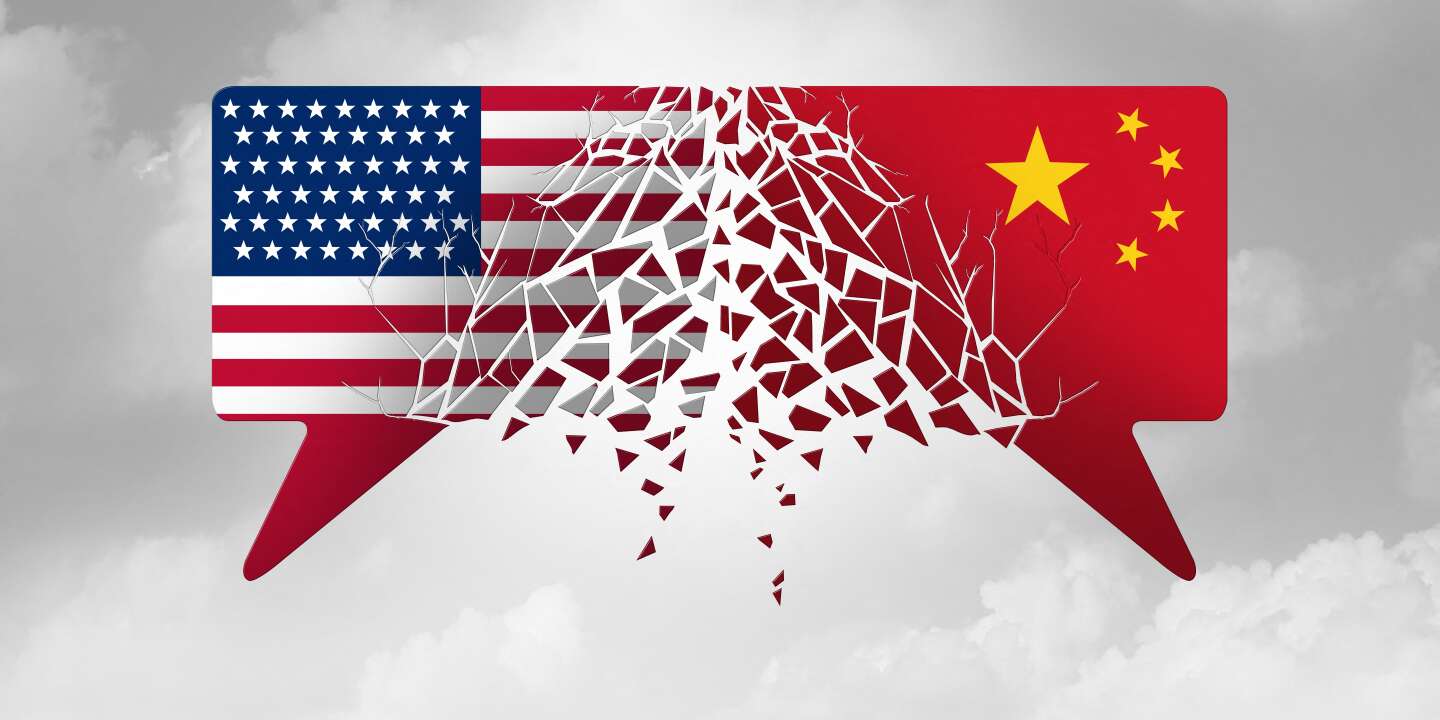
While waiting for a meeting in person, which still does not arrive, Joe Biden must be satisfied with a new virtual summit. The American president and his Chinese counterpart Xi Jinping will have, Monday, November 15, a meeting by video conference, the third meeting between the two leaders while the disputes between Washington and Beijing accumulate.
MM. Biden et Xi vont “Discuss ways to responsibly manage competition” between the two powers and “Work together when our interests meet”, according to a press release signed Friday, November 12, from the spokesperson for the White House, Jen Psaki, which specifies that the two men will speak to each other, by interposed screens ” In the evening ” Monday.
She claims that Joe Biden will be “Clear and frank about [des] concerns “ Americans against his counterpart, often described as the most powerful Chinese leader since Mao Zedong.
Xi Jinping continues to strengthen his grip on the regime, as evidenced by the adoption Thursday by the Chinese Communist Party of a text which, under the pretext of celebrating the party’s centenary, above all praises the president. The ” thought “ of the strongman of Beijing “Is the epitome of Chinese culture and soul”, we read in this document, which calls “The whole Party, army and people to unite more closely around the Central Committee of which Xi Jinping forms the heart”.
Xi Jinping’s absence from G20 and COP26 criticized
The two presidents have already called each other twice since the inauguration of Joe Biden. The American president has never hidden his desire to meet the Chinese leader in person, and did not hesitate to criticize his absence during the recent G20 and COP26 summits. But he must be satisfied with a virtual meeting with Xi Jinping, who has not left China for nearly two years, citing health reasons.
The American president, if he rejects the term ” cold War “ which he prefers that of “Competition” or from « confrontation » with China, has nevertheless made rivalry with Beijing the major axis of its foreign policy.
Relations between Beijing and Washington are at an all-time low on a whole range of subjects, from trade to human rights to China’s regional ambitions, which are pushing Joe Biden to consolidate his regional alliances in Asia. Tensions have escalated further in recent weeks over the fate of Taiwan.
After statements by Joe Biden which suggested that the United States was ready to intervene if China attacked the island, American diplomats returned to a more classic and subtle line, multiplying the warnings, and insisting on their will of “Dissuade” Beijing from any military intervention.
“Set the terms of the competition”
In this context of high nervousness, Monday’s meeting is in line with Washington’s desire to maintain the “Communication channels” open at the highest level, after contacts at ministerial level which have not always gone very well recently.
If the White House is so keen on establishing a “President to president relationship”, her spokesperson Jen Psaki said on Friday, “Not because we are looking for results or concrete decisions, which is not the case”. According to her, it is “Lay down the terms of the competition”. The United States also insists on the need, when possible, to cooperate with the great Chinese rival.
The two countries, which are also the world’s two leading emitters of greenhouse gases, for example promised this week, in a surprise joint statement, to further fight against global warming.
“Our relationship with China is one of the most important and one of the most complex that we have”, US Secretary of State Antony Blinken recalled on Friday. “There are various dimensions: cooperation, competition and confrontation, and we will act on these three aspects simultaneously”, he said, congratulating himself on having observed “Some progress” from China on climate-related issues.



